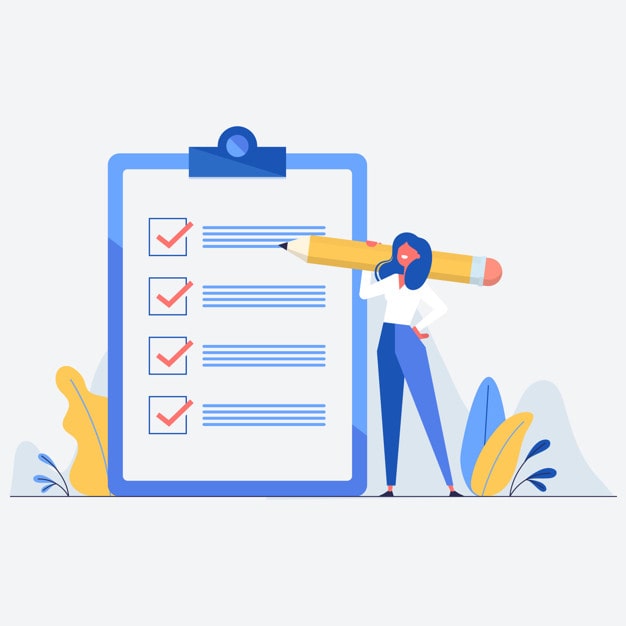
When you announce yourself at the reception, in some cases, your job interview has already begun. There are companies that assign receptionists to observe a candidate: Are they punctual? Are they friendly? Such impressions can influence the later assessment.
The main objectives of the job interview are:
- To learn about the tasks, responsibilities, and competencies of the job.
- To get to know the workplace, team, and supervisors.
- To evaluate one's own expectations and motivation.
- To discuss hierarchical position.
- To learn about leadership style and company culture.
- To clarify development opportunities and further training.
- To discuss working hours, benefits, and payment.
- To gather information about the company, its size, products, and economic position.
- To provide a basis for making decisions on further steps.
Aside from the technical and substantive aspects, you as a person are also in focus. The best professional qualifications are of little use if there is no "chemistry" present. To achieve the above objectives, the following guidance can be helpful before and during the interview.
Preparation:
Things to consider beforehand:
- Advertisement, application, original certificates, work samples.
- Paper and writing utensils (Note: Do not use a promotional pen from a competitor's company).
- Show engagement and interest, research about the company.
- Prepare your own questions based on your research.
- Plan enough buffer time for your journey to arrive on time.
A well-groomed appearance is a must:
- Follow industry-appropriate dress codes. Keep in mind that, for example, more conservative attire is expected in banks compared to advertising agencies.
- Nevertheless, it is better to be slightly "overdressed" than "underdressed."
Answers to standard questions:
- Make sure you can provide clear, emotionless, and understandable answers to standard questions. For example, questions about:
- The reason for changing jobs.
- Your professional experience.
- Your career path.
- Your strengths and weaknesses.
- Your salary expectations.
During the interview:
- Don't be discouraged by the length of the following list. Most of it will be instinctively taken into account.
- Address your interviewer by name. Maintain an upright posture, give a firm handshake, and maintain eye contact.
- Show that you know what you want and what you don't want. Justify your stance.
- Listen carefully and ask precise follow-up questions when in doubt.
- Never take over the conversation.
- Let the other person finish speaking.
- Try to find common interests and complementary skills during the conversation.
- Remain friendly at all times.
- Maintain eye contact.
- Pay attention to your body language, as it often speaks louder than words.
- Provide confident (but not arrogant) answers to questions.
- Avoid giving answers that are too brief or too detailed.
- Stay on topic.
- Be honest; do not try to "bend" the truth or deny yourself. It doesn't benefit anyone, especially not yourself.
- However, keep in mind that you are not obligated to answer certain questions (such as those related to religion or political beliefs) if they have no direct relevance to the position.
- Avoid looking at the clock, as it can signal disinterest.
- Clearly and comprehensively respond to salary-related questions and make realistic demands.
- Never complain about your previous employer.
- Ensure consistency between phone interviews, application documents, and the job interview.
In conclusion:
- Definitely clarify the next steps.
- How do we proceed?
- When can I expect a concrete response?
Make sure to follow up if you haven't heard from the company by the agreed-upon date after the interview. Also, continue to search for alternatives until you have a written offer for the new position. This strengthens your position and helps you cope with rejections more easily.